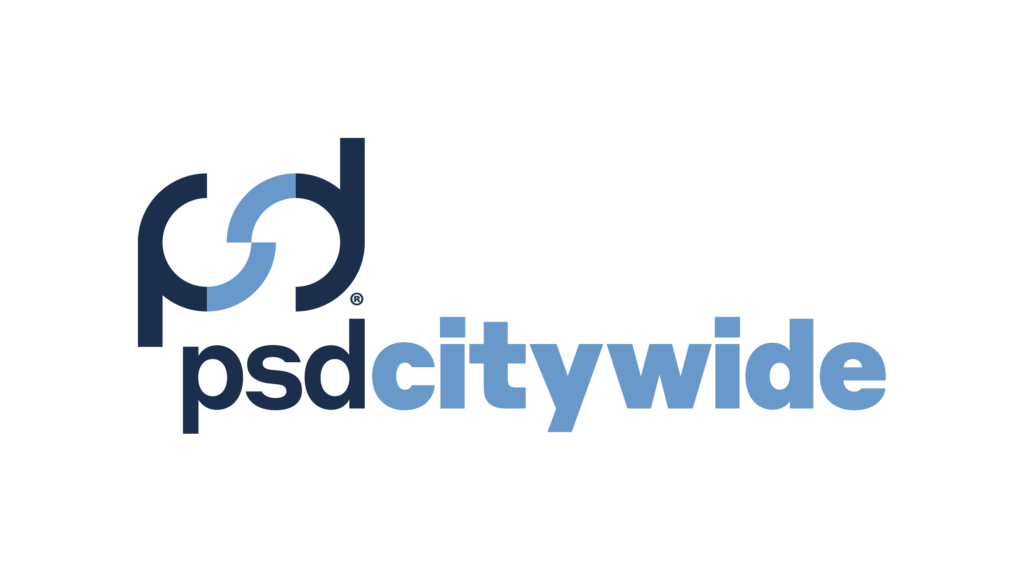By Diane Kalen-Sukra, MA, CMC
In the last edition we examined the results of a global culture assessment conducted by Barrett Values Centre to better understand the impact COVID-19 has had on local government organizational culture and trends for civic recovery, what is often referred to as the “new normal” or the “great reset”. See COVID Values Revolution—Part I: Measuring Culture Change, Charting Civic Recovery.
We saw that “wellbeing” as a personal value and organizing principle rose to a top five priority. We saw five years of local government culture change taking place in three short months. City Halls that may have previously been described as bureaucratic, rigid and siloed became defined by values that characterize vibrant, thriving organizations, such as adaptability, compassion, and open collaboration.
There is a pressure on organizations and leaders during times of uncertainty, crisis and emergency to justify cold, dispassionate calculation and decision-making, to become more authoritarian and less caring, to communicate less to “achieve more”. And employees often accept these new harsh realities in times of job insecurity and uncertainty.
For the most part, civic leaders resisted this temptation and consciously chose an alternate course, one rooted in compassion, one that brought out the best of the public servant ethos of accountability, community responsibility, service and integrity. This approach enabled even large municipalities to pivot and respond quickly to changing realities and placed local governments at the forefront of what is a global trend towards more human-centric organizations with truly human leaders.
What has emerged is a clear picture of resilient civic leadership that is purpose-driven, puts people first, is highly communicative, compassionate, committed to safety and mental health, at ease with uncertainty, flexible, grateful and optimistic.
I. SO GOES THE CAPITAL, SO GOES THE NATION
In Canada, we are fortunate to take our lead from the nation’s capital as it is said that nations express their identity and exert political and moral influence through their capital city. Though the City of Ottawa had in recent years faced many emergencies including ice storms, multi-day blackouts, two 100-year flood events, and tornados among others, this pandemic posed an organizational challenge like none other.
The response of the City in the first two weeks following Ontario’s Premier declaring a State of Emergency on March 17th — the time of greatest uncertainty and major organizational pivoting—is a textbook masterclass in resilient civic leadership.
Almost immediately an Ottawa staff Resources webpage was posted to reach the city’s 17,000 civic employees. City Manager Steve Kanellakos addressed all staff with detailed information regarding essential services, closures, protective measures for employees, resources and supports for staff, a message of encouragement and support as well as a commitment to ongoing open communication.
The management team focused on continuity of service and staff sustainability plans that were flexible and able to evolve as the COVID-19 situation evolved. These plans were designed to ensure health and safety, provide staff with flexibility as they balance personal and work-related priorities, give opportunities to recharge reducing risk of burnout and acknowledging heightened pressures, include ways to reduce the number of staff in one place at a time, and provide supports to enable staff to work from home.
On March 20th, Mayor Jim Watson delivered a heart-felt message of encouragement, understanding and support to all city staff and frontline essential workers in Ottawa acknowledging their sacrifice, service and good will.
By March 25th, Mayor Watson declared a State of Emergency and the City began providing relief on property tax bills and launched a public campaign to encourage support for essential workers, as well as a buy local campaign urging the public to order from local businesses. City Manager Kanellakos addressed all staff again, for a third time in just over a week.
II. THE MARKERS OF RESILIENT CIVIC LEADERSHIP
By March 31st, just two weeks after the Province declared a State of Emergency, Ottawa city leadership had dramatically pivoted the massive organization to respond to the new COVID-19 realities including closures, social distancing, and remote work while reliably maintaining services.
City Manager Kanellakos again directly addressed every city employee with a comprehensive message that included both vital information as well as encouragement, compassion, vision and support. His address hit every marker of resilient civic leadership. Let’s break it down by principles, followed by extracts (in italics) from his address:
Purpose-Driven & Communicates Common/Higher Purpose:
I’m so proud of everybody, how you have adjusted to all the changes we’ve implemented in the last two weeks, but I think it was critical that we move quickly to protect our people because the services that our people deliver are the only way that everyone else in our community can stay home and function… All I can ask is that you continue to think about others, think about the common good, think about our community, think about the things that really matter to everyone else and how much they depend on us to do our jobs so that they can stay home.
Prioritizes Clearly & Communicates Priorities – People First:
Two weeks ago we had to move very quickly to take care of the number one priority that I’ve always talked about, and that’s our people.
The second priority for us is our community, and there are a lot of vulnerable people in our community, they need our help. We have a human services task team that’s led by the Community and Social Services Department. The staff there are doing an amazing job helping people who need our help the most at this time.
The third thing that we are focusing on are our services. We have to figure out very quickly how are we going to maintain the critical services so that we can keep going and this City keeps running and we can come out of this in a strong position into the future.
Compassionate & Humane:
I know it’s hard on people. I’ve seen more basement photos of offices and cats and pets and children and all kinds of photos people are sending me about their working conditions from their home. Some of them are quite funny actually and I’m getting quite a kick out of it, but it just tells me how resilient and adaptable people are in terms of making the best of the situation and it can’t be easy being home and being out of your routines and dealing with things that you never thought you’d had to deal with it’s a very, very different situation for us.
Committed to Safety & Mental Health:
We have to make sure that our people are mentally well in terms of their mental health. That we’re supporting them and that people feel that they are supported every day when they’re doing their jobs.
Honest & Vulnerable:
I know we’re not perfect. I’m not expecting we’re going to be perfect. There are so many different situations and circumstances, but there’s one key word I keep telling our general managers, and that’s flexibility.
Flexible, Empower Staff:
We need to be flexible with our staff, we need to give them every opportunity to be able to deliver the services the way they can and give them total flexibility to deliver it in a way that accommodates their circumstances. That is a very important principle for us because I firmly believe, as you know, that if we take care of our people, our services will be taken care of and therefore our community will be taken care of.
Ease with Uncertainty:
We are not at the end, we are just at the beginning, and remember that we have a long way to go. But I want to give you comfort that we’re doing everything we can to put you at the forefront of our minds in terms of how we go forward. Please take care of yourselves, take care of your families.
Gratitude:
I thank you from the bottom of my heart. [Thank you expressed to everyone from Council to the public health officer, emergency management operations, departments, teams and individuals.]
Kanellakos is a clear proponent of the servant leadership model which is a natural fit for any organization, but a practical imperative in the public service, as it embeds in the organization a purpose-driven, public servant mindset. This approach builds trust, unity and adaptability into the organization (countering bureaucratic pressures) which leads to better, more resilient service delivery. Despite inevitable challenges during this period, public ratings for the City’s COVID-19 response remained high.
III. COMPASSIONATE LEADERSHIP FROM SEA TO SEA
Numerous studies today are showing that leaders who are compassionate and have a servant mindset, inspire employees to be more committed, trusting and helpful to each other creating a self-reinforcing cycle of psychological safety and wellbeing that leads to better organizational outcomes—including increased cooperation, adaptability, productivity, innovation and service quality.
From sea to sea, there are similar examples of resilient civic leadership in action, championing this organizational model where leaders serve the employees, who in turn serve the community. It is this logic that almost counterintuitively makes a crisis a perfect time to invest in employee wellbeing and development.
On the Sunshine Coast in Gibsons, British Columbia, Chief Administrative Officer and Chief Resiliency Officer Emanual Machado doubled-down on what he calls a “culture of teamwork” and extended professional online courses through LinkedIn Learning to employees to both improve skills, but also help combat isolation for suddenly remote civic employees.
On the east coast, the Council of the District of Guysborough, Nova Scotia unanimously decided a pandemic is the perfect time to pilot a four-day work week, a first of its kind in the municipal sector. Chief Administrative Officer Barry Carrol connects the dots behind this decision in this way: “It’s about finding a way to better balance work life and home life. We’ve always been a little proactive when it comes to the mental health of our employees and in finding additional ways to better serve the public.”
All aboard the great reset—compassion is the new normal.
DIANE KALEN-SUKRA, MA, CMC is PSD’s Civic Resilience columnist. She is an author, speaker, educator, coach and certified culture change consultant with the Barrett Values Centre. Diane’s firm Kalen Consulting inspires and equips leaders to build resilient communities through good governance, asset management, servant leadership, compassionate culture, and civic education.
Subsidiary Kalen Civic Academy hosts Resilient Civic Leadership: Compassionate Integrity Training for Civic Leaders, a university certificate program through the Centre for Compassion, Integrity & Secular Ethics at Life University. This 10-session program shares ancient wisdom for modern city builders, backed by cutting-edge developments in the fields of neuroscience, psychology, trauma-informed care, peace and conflict studies, and contemplative science.
For more, join Diane on social media: LinkedIn | Twitter | Facebook | Instagram | Blog



